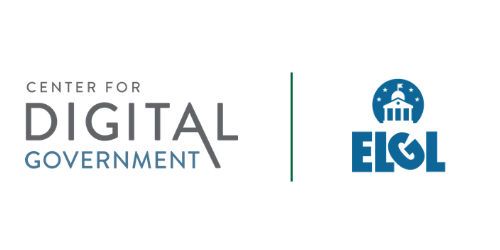How Citizens Prefer to Access Local Government Services
What Citizens Want: New Research from the Center for Digital Government
How do U.S. citizens feel about the accessibility of local government services? We’re living in the midst of a boom of options for connectivity.
With this in mind, Rock Solid Technologies partnered with the Center for Digital Government and Engaging Local Government Leaders (ELGL) to conduct a survey to discover how citizens’ expectations for the accessibility of Local Government services are being met.
Get the Full Report
How Satisfied Are Citizens With Their ability to Access Local Government Services?
How do Citizens Want to Access Local Government Services?
Which services do citizens want to access digitally?

What Are Citizen Preferences by Age?

What Services Should My City Prioritize to Improve Accessibility?
Services Included in the Survey
311 (Service Requests & info)
Building Permits
City/County Government Meetings
Courts
fire/EMS
Job Training
Library
Parks and Facilities
Planning and Zoning
Police
Pothole & Street Repair Requests
Public Health
Recreation Programs
Utility Billing
Water/Sewer Emergencies
What the Research Shows
Local Government is Accessible, but there's room for improvement
Let’s start with good news: over half of people surveyed (56%) are satisfied with their ability to access Local Government services.
This lines up with similar research on the public’s sentiment towards Local Government. A study featured in Bloomberg CityLab revealed that most Americans feel positively about the value of local public services, even across genders, races, income groups, and locations. Pew Research Center found that 63% of people held a favorable view of their Local Government, leading over views of State and Federal Government.
However, there are two sides to every coin. 44% of people surveyed did not feel positively about their ability to access Local Government services. That means there’s work to be done.
Get the Full Report
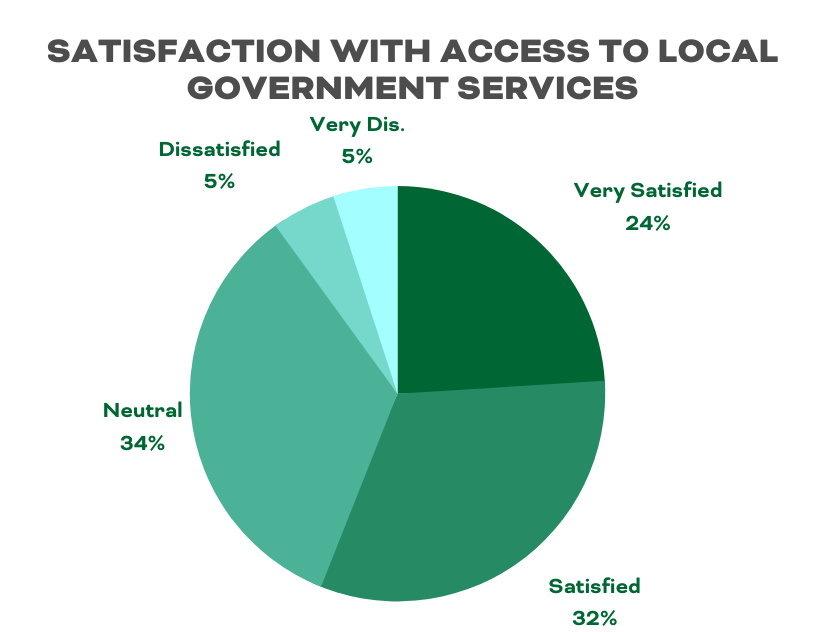
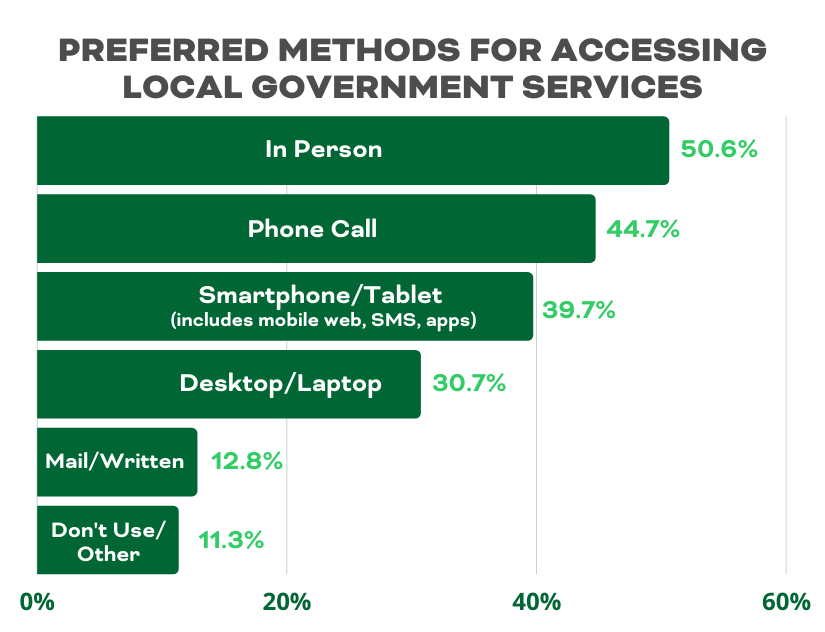
How Citizens Want to Access Services
Omnichannel is the word of the day. 60% of respondents who use Local Government services selected more than one medium as their preferred method of access. That means three out of five people like to connect with their government using multiple methods.
While traditional methods of in-person and phone calls to engage top the charts, 62% of people like to reach for a smartphone, tablet, or computer to connect with Local Government.
People today want to engage in multiple and varied ways. Local Government should be ready to serve.
Interaction with government is still going to continue to be a multi-channel engagement…What you’re starting to see is people’s comfort level increasing with those digital interactions, be it a mobile app, chatbot or some sort of virtual engagement because at the end of the day [people] just want convenience.”

Digital Access Preferences
What services do people want to access most on their computers or smartphones? All of them! There is significant interest across a range of services in digital and mobile accessibility. For most services, over half of citizens across all demographics are interested in both digital and mobile access.
This is reflective of greater trends in device ownership. According to Pew Research, 9 out of 10 U.S. adults use the internet. To access the web, 81% own a smartphone, 74% own a desktop or laptop, and 52% own a tablet.
While computer ownership has remained relatively flat since 2010, smartphone and tablet ownership have grown. Though it does appear that tablet ownership may be plateauing, smartphones still appear to trend upward. Also notable is that approximately one in five Americans are “smartphone only” internet users.
Internet device ownership is prevalent, which is in line with the high interest in accessing Local Government services via smartphone, tablet, desktop, or laptop. You can check out the full What Citizens Want report for a complete breakdown of access interest by service type, but here are the top five most desirable Local Government services for mobile or computer access:
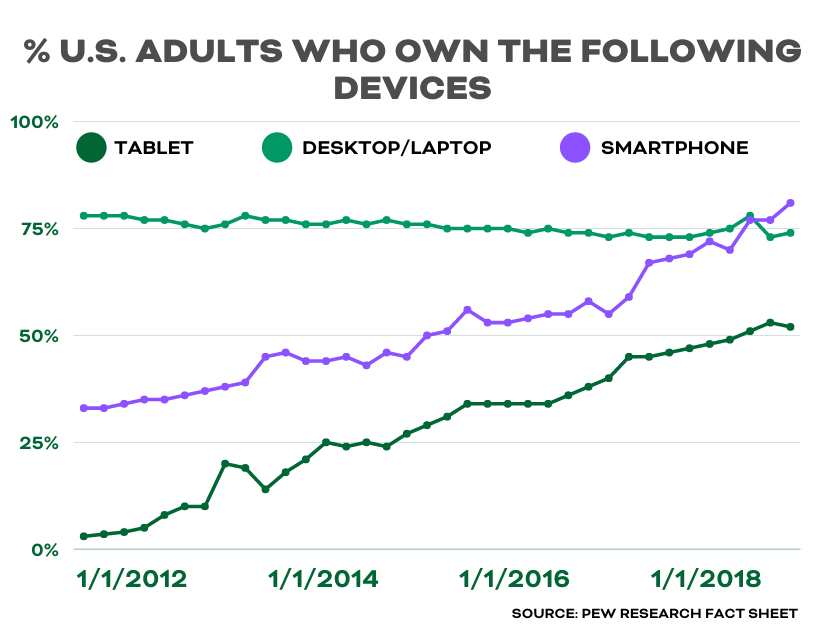
.png)
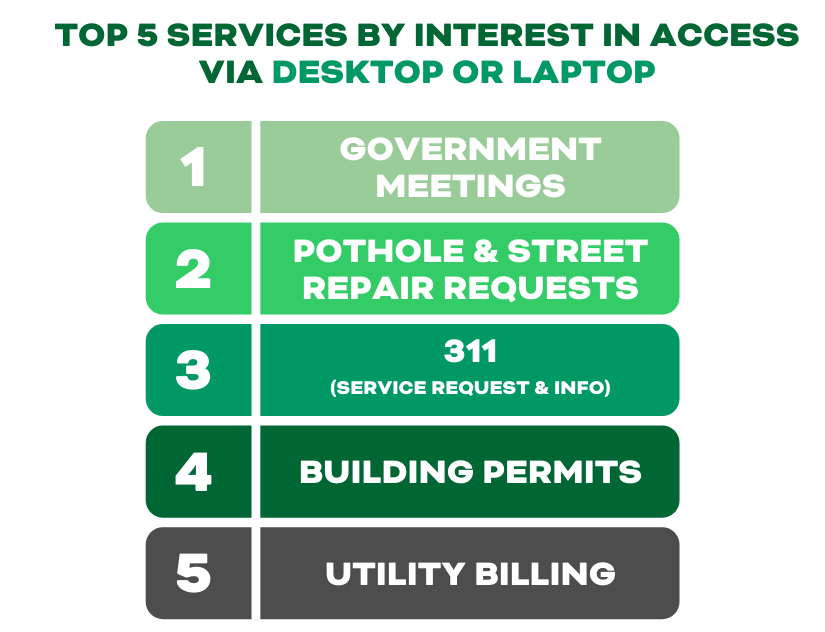
The Age Equation
Here’s where the first hurdles begin - why are some people dissatisfied? Segmenting by age revealed interesting insights. The younger you look, the more omnichannel preferences emerge.
Over half people 55 and older, which includes Baby Boomers (ages 55-74), the Silent Generation (74-91), and the Greatest Generation (91+), agree that Local Government is easy to communicate with. That drops below 50% for Generation X (39-54) and Millennials (23-38). For Generation Z (18-22, as this survey only includes adults), that number plummets to less than one in three.
Local Government caters well towards Baby Boomers and older generations. We’ve had over fifty years to adjust to their preferences, after all. But younger generations are more digital-savvy, and even digital-native. This won’t be a surprise to many people, but many of the challenges in Local Government access relate to this disconnect.
Also notable is that Gen Z is the most likely to be very unsatisfied with access to local government. As more of Gen Z enters adulthood, these trends are likely to amplify. An important challenge for Local Government moving forward is to plan how to make government accessible for people of the future.
There are also differences between residents of large cities and small towns. Check out the full report to learn more about how different populations prefer to access Local Government services.
Get the Full Report
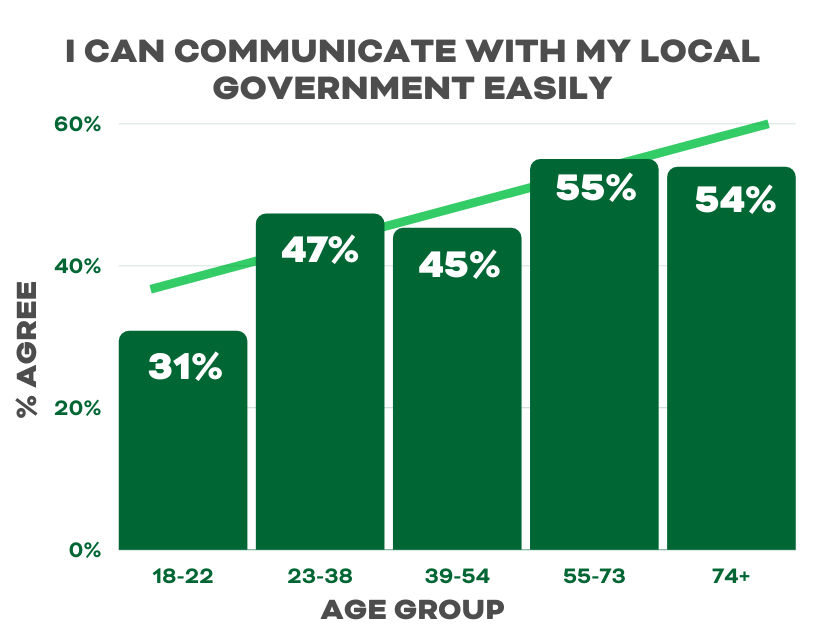
Download the Full Research Report
People have more devices than ever before, and Local Government needs to keep up. But traditional methods of accessing Local Government services aren’t going to disappear. Though younger generations are more interested in digital access, in-person visits and phone calls are here to stay.
The more omnichannel your agencies can be, the better you can meet the needs of every citizen. Prioritize omnichannel service delivery to match the needs of your residents. Make more informed decisions on how to better serve your community with the latest research from the Center for Digital Government, ELGL, and Rock Solid.
Get your free copy of the what citizens want report
About the Research
This survey of 2,042 U.S. adults was conducted by Government Technology’s Center for Digital Government, Engaging Local Government Leaders (ELGL), and Rock Solid Technologies to understand preferences for and opinions of the accessibility of Local Government services. This research was conducted in October of 2020. Additional details on respondent demographics are included in the full report.
Get the Full Report
